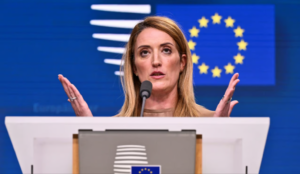
EU countries may start official negotiations with Ukraine on EU membership as early as December, European Parliament President Roberta Metsola said in an interview with The Guardian.
“If they are moving fast, we must match that speed,” she said.
Metsola wants formal negotiations to begin before Christmas, The Guardian writes. The decision rests with EU ministers, who will hold a formal meeting in December after a public report on Ukraine’s progress in reforming the judiciary, fighting corruption and opening markets is presented in October.
“I expect a concrete result, because the worst signal could be that we have set tasks and deadlines for these people that we cannot fulfill ourselves,” Metsola said.
According to her, the European Union has to start large-scale changes to prepare for Ukraine’s accession. At the same time, “nothing should be ruled out,” including the elimination of trade tariffs and granting Kyiv access to internal markets before full accession.
At the same time, the newspaper emphasizes, Metsola, like some other EU leaders, believes that the bloc needs to speed up access for Ukraine and the Balkan countries that have also applied in order to limit the risk of Russian interference in these former Soviet territories.
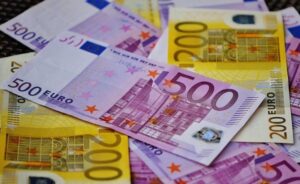
Ukraine has received the eighth tranche of macro-financial assistance in the amount of EUR 1.5 billion from the European Union, Prime Minister Denys Shmyhal said.
“Today, Ukraine has received the eighth tranche of macro-financial assistance in the amount of €1.5 billion from the European Union. In total, the EU’s budget support for Ukraine in 2023 already amounts to €13.5 billion,” Shmyhal wrote in X on Friday.
According to the prime minister, the EU’s total support for Ukraine has reached approximately €70 billion since Russia’s full-scale invasion.
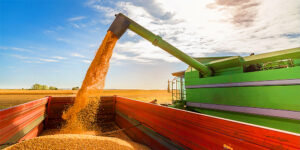
The number of economic discussions will increase as Ukraine approaches EU accession, and they will mainly concern agriculture, as 40% of the legislative norms that need to be harmonized relate to the agricultural sector, said Mykola Solsky, Minister of Agrarian Policy and Food.
“We need to understand that as we get closer to (Ukraine’s) accession to the European Union, the number of economic discussions will increase. We need to develop immunity to them, be smart and pragmatic,” he said on the air of the United News marathon.
The minister also noted that this year Ukraine received a list of legislative norms from the EU that need to be prepared and changed, and 40% of everything that needs to be adapted to join the EU is related to agriculture and food.
Solsky emphasized that in recent months, Ukraine has for the first time faced the need to defend its economic position to neighboring countries. “This is the first but not the last economic discussion,” he added.
The minister also emphasized that the grain dispute with neighboring countries is the first precedent for Ukraine that has caused such an emotional reaction among Ukrainian society and politicians.
“I propose to treat this as if we have taken half a step to the last line before joining the European Union. When we become a member of the European Union, it will always be like that. This is normal according to the rules of the European Union. This is a democratic association (…) This is a process that we will obviously go through many times,” the Minister of Agrarian Policy said.
Answering a question about the possible escalation of emotions around Ukrainian agricultural exports during the EU accession, Solsky said that there will definitely be such discussions, but “we should not be afraid of them, but should immediately prepare, learn something and take into account something.”
According to the minister, the work at the European Commission level over the past six months has shown that this association regularly holds meetings of agricultural ministers, where discussions are constantly taking place.
“Each state has its own farmers, its own processors, its own interests, which it considers national. They sometimes go against the opinion of other members of the European Union. (…) If we want to be a member of the European Union, we need to be ready to defend our interests publicly, sometimes not publicly,” the minister explained.
As reported, during the week, Solsky held telephone talks with the agriculture ministers of Romania, Bulgaria, Slovakia, Hungary and Poland to discuss the details of the introduction of stricter controls over the export of Ukrainian wheat, rapeseed, sunflower and corn to these countries after the European Commission lifted restrictive measures. Ukraine is obliged to provide written explanations to the neighboring countries on the implementation of the proposed procedures. Negotiations will continue next week.
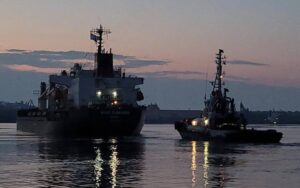
EU Diplomacy Chief Josep Borrell says the events in Ukraine threaten global food security, and the EU will discuss with the UN Secretary General the prospect of reviving the “grain deal”.
“This affects all countries, but especially the weakest and poorest. In August 2022, the UN played a crucial role in mitigating this suffering through the Black Sea Grain Initiative. However, in July, Russia decided to abandon this agreement,” Borrell wrote in his blog post, looking ahead to the UN General Assembly’s High Level Week that opens in New York.
“We will discuss with UN Secretary General Guterres ways and means to revive it. Sustainable development goals are in the focus of the UNGA,” said the EU High Representative for Foreign Affairs.
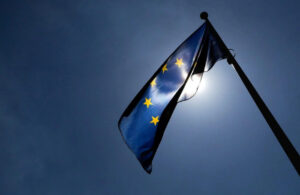
The number of bankrupt companies in the EU in the second quarter of 2023 increased for the sixth consecutive quarter and reached 106, the highest since the beginning of data recording, i.e. since 2015, according to the European Union Statistical Office (Eurostat).
In quarterly terms, the number of bankruptcies increased by 8.4%.
At the same time, the number of new company registrations decreased by only 0.6% to 124. The figure has been stable around 120 companies since the third quarter of 2020 after falling to 80 at the height of the coronavirus pandemic.
The most notable increase in the number of bankruptcies in April-June was recorded in the hotel and catering sectors (by 23.9% compared to the first quarter), as well as in the transport and warehousing sector (by 15.2%).
The number of bankruptcies also increased in almost all sectors compared to the pre-pandemic fourth quarter of 2019. The only sectors where the number of bankruptcies decreased during this period were industry (-11.5%) and construction (-2.7%).
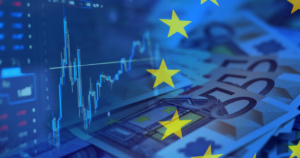
The European Commission (EC) has downgraded its forecast for eurozone economic growth in 2023 to 0.8% from the previously expected 1.1%.
In 2024, eurozone GDP is expected to grow by 1.3% rather than 1.6%, the EC said in a review.
The forecast for EU economic growth for this year has been worsened to 0.8% from 1% and for next year to 1.4% from 1.7%.
“The latest statistical data confirm that economic activity in the EU has been subdued in the first half of 2023 due to the severe shocks facing countries in the region. Weakness in domestic demand, especially consumer spending, shows that high prices for most goods and services are putting more pressure on the economy than we believed in our previous forecast,” the survey said.
“The sharp contraction in bank lending suggests that monetary tightening in the euro area is having an impact on the economy,” the EC said. – Various surveys point to a slowdown in economic activity over the summer and the following months. Weakness in the industrial sector persists, and the impetus for growth in the services sector is weakening”.
EC experts emphasize that the situation in the world economy in the first half of the year was slightly better than expected, despite the weak dynamics in China. Nevertheless, the EC forecasts for the world economy and international trade volumes are practically unchanged, which means that European countries cannot count on support from external demand.
The EC expects global GDP to expand by 3.2% both this year and next year.
“The momentum towards slower growth in the EU is likely to continue into 2024, as tight monetary policy will continue to constrain economic activity. At the same time, we expect GDP growth to pick up slightly next year as inflation slows, the European labor market remains strong and household incomes gradually recover,” the EC review said.
The eurozone inflation forecast (HICP index) for this year has been lowered to 5.6% from 5.8%, for next year – raised to 2.9% from 2.8%. In the EU, according to the EC’s updated forecast, inflation will be 6.5% this year (previously 6.7%) and 3.2% next year (previously 3.1%).
The EC expects that energy prices in Europe will continue to decline until the end of 2023, but more slowly than before. At the same time in 2024 they may again slightly increase due to the expected rise in oil prices.
The EC review notes that the war in Ukraine and other geopolitical factors still carry risks for Europe.
In addition, experts warn that the tightening of monetary policy may put more pressure on the economy than expected at the moment. On the other hand, it may lead to a faster easing of inflation and, accordingly, accelerate the recovery of real incomes, the review notes.
According to the EC’s forecast, Germany’s GDP will contract by 0.4% in 2023 and grow by 1.1% next year. Previously expected to increase the first indicator by 0.2%, the second – by 1.4%.
France’s economic growth forecast for 2023 has been raised to 1% from 0.7%, for the next year it has been lowered to 1.2% from 1.4%.
Italy’s economy is expected to grow by 0.9% and 0.8% in 2023 and 2024 respectively, while Spain’s is expected to grow by 2.2% and 1.9%.
Experts Club Research Project and Maxim Urakin recently released an analytical video about the economy of Ukraine and the world.
Subscribe to the Experts Club YouTube channel by clicking here – https://www.youtube.com/@ExpertsClub